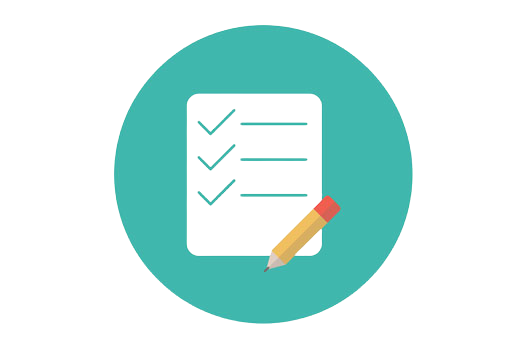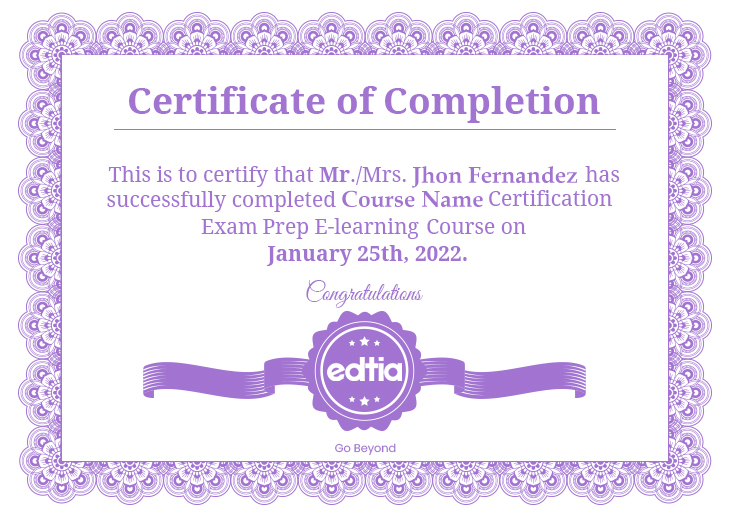Your Shopping Cart

Master RPA Developing by enrolling in EDTIA'S RPA Developer Masters Program Training and upskill your knowledge and technological skill in Automation.
This course aims to familiarise the learner with the concepts of Robotic Process Automation. Robotic Process Automation eliminates human intervention for performing repetitive, less complex tasks. This course exaggerates the qualities and advantages of using Robotic Process Automation techniques in businesses.
RPA Developer Certification Course is a structured understanding approach suggested by industry professionals.
While the RPA Developer Course is created for Developers, Technical Leads, Production Managers, and Business Analysts, the program is also designed to help fresh graduates who want a career in Robotics. Process Automation field.
RPA Developer Certification Course has been curated after detailed research and guidance from industry professionals. It will help you prepare for the UiPath's RPA Developer Advanced Certification Exam, and the Automation Anywhere Certified Advanced RPA Professional Certification Exam.
There are no prerequisites for this course. A basic understanding of programming concepts and good logical reasoning ability will be helpful.
In RPA, there are many technical and non-technical job roles such as Process Designer, Automation Architect, Project Manager, Business Analyst, Process SME, RPA Developer etc.
Support Representatives RPA Developers IT Professionals Application Developers
Robotic Process Automation has developed rapidly over the past few years. The demand for RPA is growing in the RPA market as it promises to substitute repetitive, rule-based, mundane, manual digital tasks with software robots.
The primary responsibilities of an RPA developer are to design, develop, and implement software robots to work alongside humans to improve business operation efficiency.
This module will learn about the evolution and future of the Robotic Process, Automation, how It works, and its components.
understand basic concepts of UiPath.
understand the main components, namely variables, arguments, activities, UI Automation, System activities, and various User Events.
This module will learn about Recording, Scraping Data and integrate these activities with the corresponding apps.
This module will learn about Data Manipulation, virtual machines, Citrix, text, image, and PDF Automation.
Discover programming in UiPath, organizing projects, debugging projects, and handling exceptions.
This module will learn about Orchestrator Community Edition (CE) and other leading RPA tools.
In this module, you will learn how to use the framework template in UiPath to create business processes and understand the various components involved.
This module will learn about Robotics Process Automation and its concepts
know about the basics of Automation Anywhere and its features, Automation Anywhere clients and different types of Bots.
Discover Automation Anywhere's Web Control Room and how to manage and deploy bots, active users, registered clients, and tasks.
This module will learn about the recorders, variables, and commands used in Automation Anywhere.
understand how to perform data manipulation, web automation, and manage services using Automation Anywhere tool.
learn about Bot operations to create and calibrate MetaBots, import/export the MetaBots.
understand integration commands, error handling, and XML automation.
understand administration tasks such as creating users, assigning roles and permissions, and gaining graphical insights about the functioning of bots.
This module will learn about advanced cognitive technology, IQ Bot.
Work on a project based on all the concepts you have learned in the course.
Edita Support Team is for a lifetime and will be available 24/7 to help with your queries during and after the completion of the course.
RPA tools are designed so that they are extremely easy to use.
The average salary for a Robotic Process Automation (RPA) Developer is $80,179 annually.
To better understand the RPA Developer Masters Program, one must learn as per the curriculum.
e primary role of RPA Developers is to create, design, develop, and implement RPA systems. They use various RPA tools and technologies like UI Automation, Blue Prism, and more to set up and analyze automated processes. They use these tools to analyze the strategies and check whether they can be automated.
RPA developer skills are as follow: knowledge of the existing tech business processes expertise process mapping change management data analytics vendor evaluation
RPA system is extremely easy to use and implement as it concentrates on providing help to end-users to navigate. It also makes the workers learn which work is to be done more conveniently and fast.
No, it's not difficult to learn as it does not require any programming and coding language.


Every certification training session is followed by a quiz to assess your course learning.

The Mock Tests Are Arranged To Help You Prepare For The Certification Examination.

A lifetime access to LMS is provided where presentations, quizzes, installation guides & class recordings are available.

A 24x7 online support team is available to resolve all your technical queries, through a ticket-based tracking system.

For our learners, we have a community forum that further facilitates learning through peer interaction and knowledge sharing.

Successfully complete your final course project and Edtia will provide you with a completion certification.
You will receive Edtia RPA Developer Training certification on completing live online instructor-led classes. After completing the RPA Developer Masters Program course module, you will receive the certificate.
An RPA Developer, Masters Program certificate, is a certification that verifies that the holder has the knowledge and skills required to work with automation technology.
By enrolling in the RPA Developer Masters Program Training Certification course and completing the module, you can get Edtia RPA Developer Masters Program Training Certification.
You will be given access to the course material for a lifetime once you have enrolled in the RPA Developer Masters Program.
